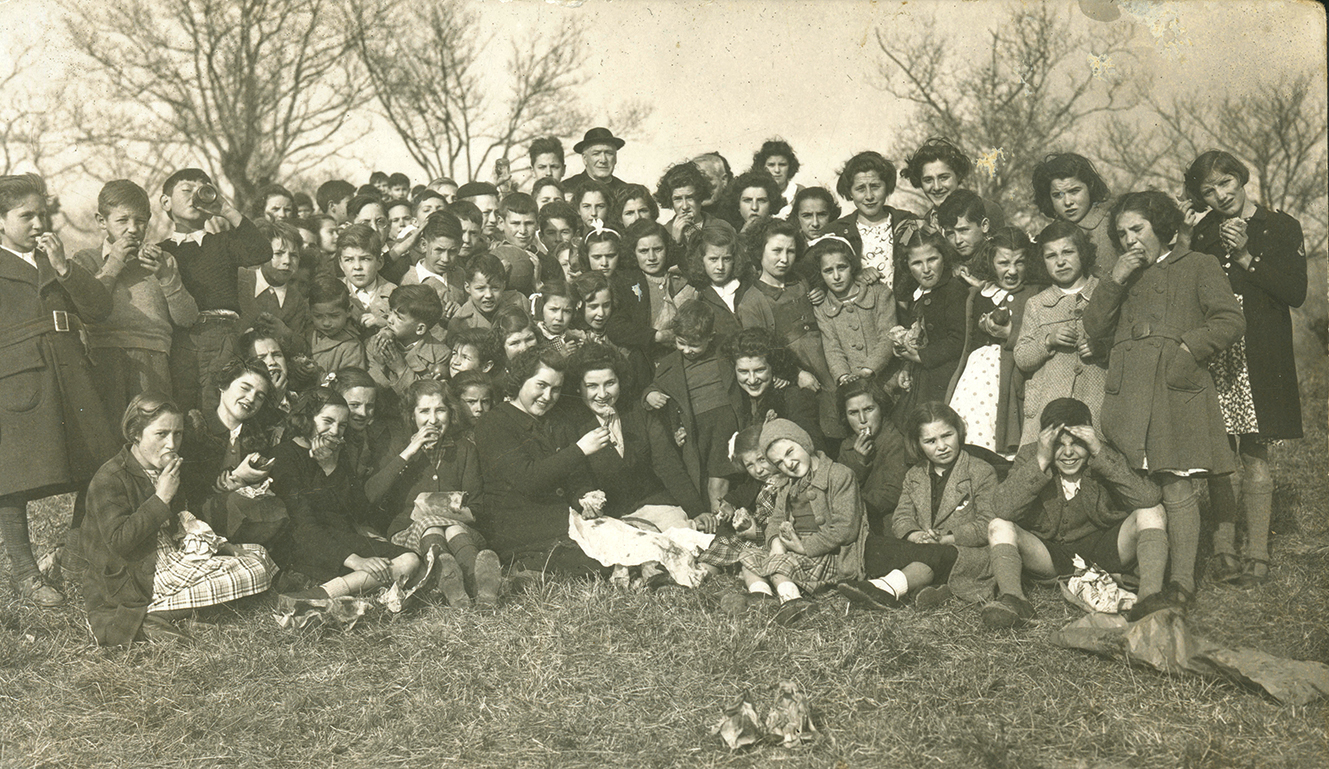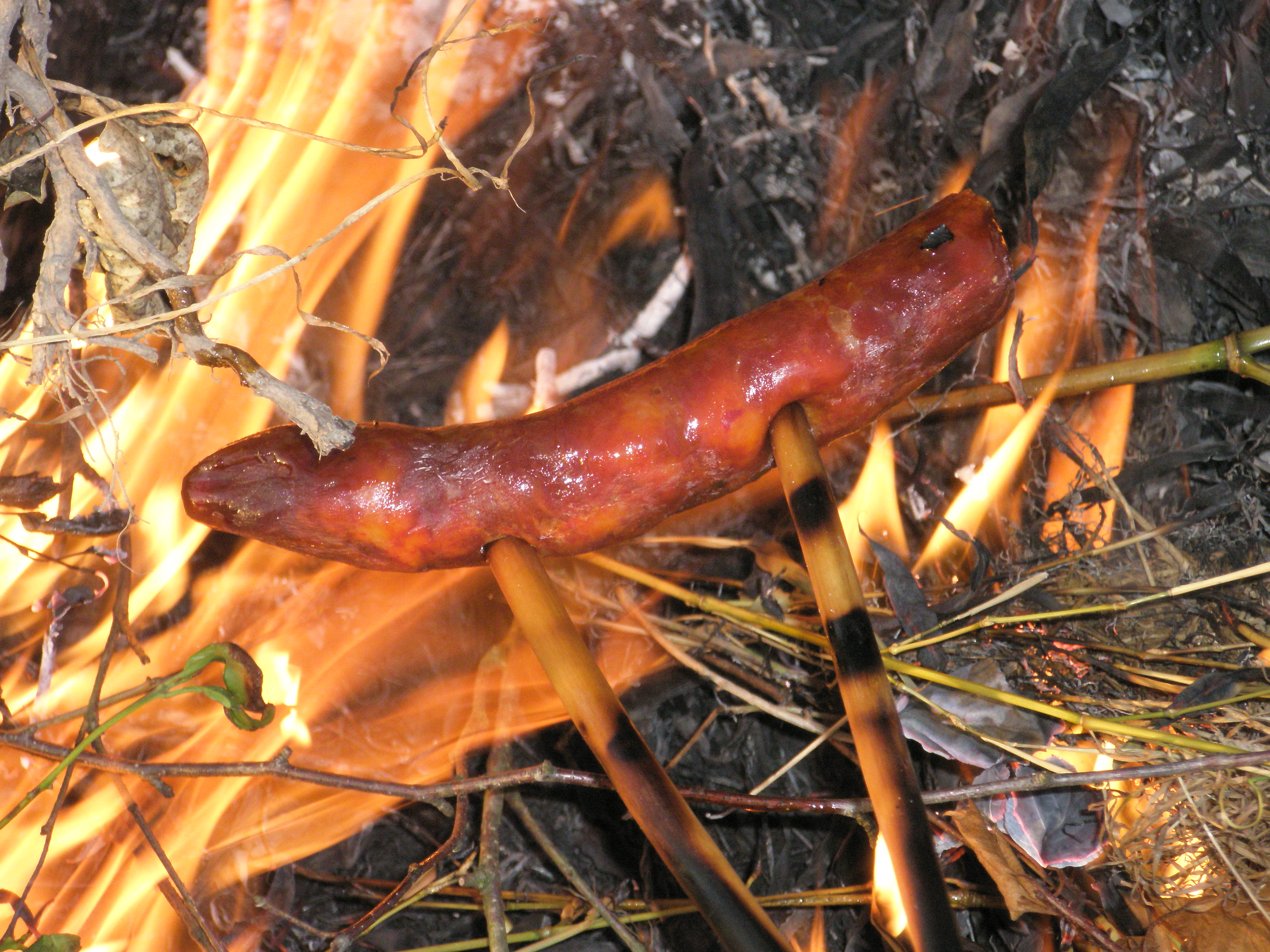Basque ethnography at a glance

Basokoipetsu. Berrizburu (Bizkaia), c. 1940. Courtesy of Aurora Agirresakona.
Carnival is the main and most deeply-rooted celebration of the carnival cycle and does not have a fixed date. Depending on location, the cycle also encompasses several pre-carnival traditions.
Here we shall focus on the custom preserved in Bizkaia on the Sunday previous to Shrove Sunday, marking the start of the carnival season before the run-up to Fat Thursday and culminating in celebrations on Shrove Tuesday.
It was customary to make an afternoon outing to the nearby woods, light a fire and cook a meal, most commonly spicy sausages and other meats from the annual pig slaughter, which were the staple foods in households at this time of the year.
The tasty pork pieces are speared with sticks and roasted over the flames to be shared among friends. More than a family gathering, it is indeed a joyous time to be with friends. The day formerly provided a much appreciated opportunity for young boys and girls to escape to the woods.
The tradition and how it is celebrated might be similar from location to location; its denomination, however, varies across geographical areas.

Txitxiburduntzi. Akaitze Kamiruaga. Labayru Fundazioa Photographic Archive.
Txitxiburduntzi (and its various variants, namely zuzu-burduntzi, txintxi-burrintzi…) is one of its names. The term is a combination of txitxi ‘meat’ or ‘solid food’ in affectionate child-directed speech and burduntzi ‘spike for roasting’, thus alluding to the barbeque itself.
Sasikoipetsu and basokoipetsu are other names to refer to the traditional pre-carnival meal outdoors.
Basaratoste, basatoste, basaratiste, basabatiste are variants of an alternative and widely-spread name for the practice. As it suggests, this is a carnival (aratuste) in the woods (basa). Aratuste ‘carnival’ literally means ‘giving up meat’; the same goes for the Romance word carnestolendas.
Also worth mentioning are the designations kanporamartxo and basomartxo. The first element in both compounds, kanpora ‘outdoors’ and baso ‘woods, mountain’, makes allusion to the rural nature of the occasion.
Various associations and municipalities organize the fun outing today, and further events are often planned. Once enjoyed mainly by youth, it is now a more institutionalized celebration for the general public.
Igone Etxebarria – Labayru Fundazioa
Translated by Jaione Bilbao – Ethnography Department – Labayru Fundazioa
References for further information: the publication Aratusteak Bizkaian [Carnival in Bizkaia], the video Aratusteak Bizkaian [Carnival in Bizkaia], and Family Diet, the first volume of the Ethnographic Atlas of the Basque Country collection.

